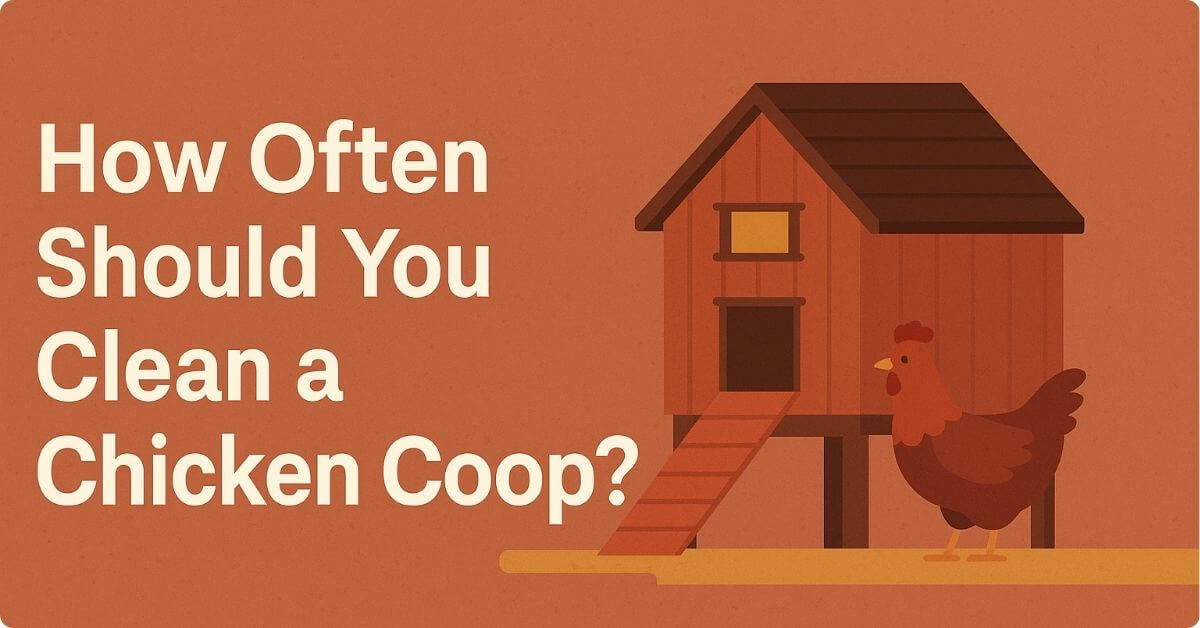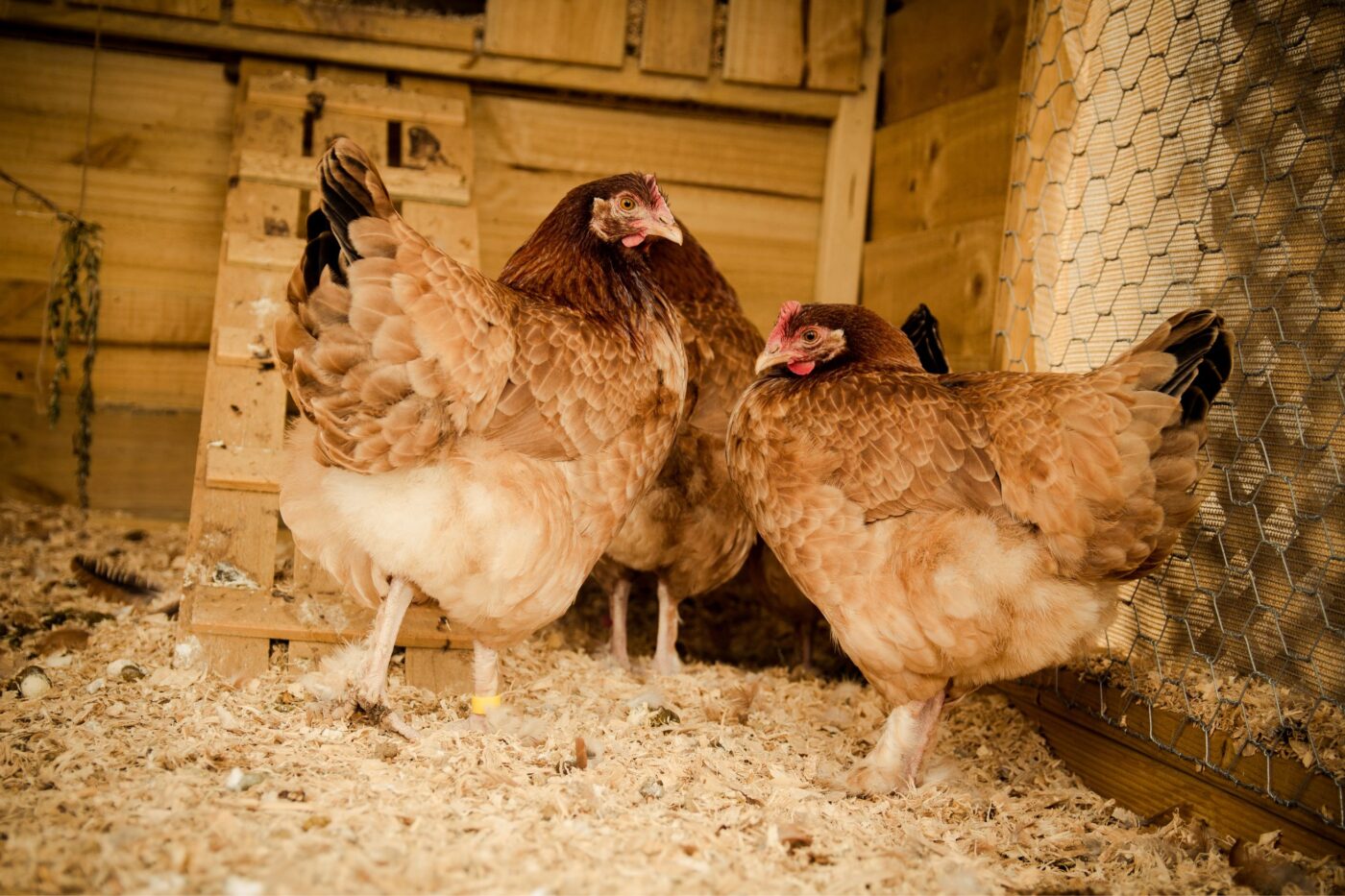Let’s face it – nobody actually enjoys cleaning out chicken poop I’ve been raising backyard chickens for years, and I still groan a little when it’s coop cleaning day But trust me when I say that keeping your chicken’s home clean is super important for their health and happiness (and for your nose too!)
I’m gonna break down exactly how often you should be cleaning different parts of your chicken coop, what products work best, and some shortcuts that’ll save you time without sacrificing your flock’s wellbeing
Why Regular Coop Cleaning Matters
Before diving into the cleaning schedule let’s talk about why this chore is so dang important
- Prevents ammonia buildup (which can cause respiratory issues)
- Reduces risk of parasites and disease
- Creates a more comfortable environment for your chickens
- Leads to better egg production (happy chickens = more eggs!)
- Keeps your neighbors from complaining about the smell
The Ultimate Chicken Coop Cleaning Schedule
Daily Tasks (5-10 minutes)
Yep, daily! But don’t worry, these are quick:
- Remove droppings from dropping boards – Chicken poop contains bacteria that should be cleared daily. A simple trowel or scraper works great for this task.
- Collect eggs – This prevents breakage and keeps nesting boxes cleaner.
- Remove excess food – Empty feeders at night to avoid attracting predators, then refresh in the morning.
- Check water sources – Make sure water is clean and not contaminated.
I personally clean out the bedding where my chickens sleep every single day to get rid of those big poop clumps. It takes just a few minutes and makes a huge difference!
Weekly Tasks (15-20 minutes)
Add these to your routine once a week:
- Refresh nesting materials – Replace soiled bedding in nesting boxes with fresh material.
- Clean waterers and feeders – Scrub these down with a water/vinegar solution (equal parts) to kill bacteria.
- Dust walls and ceilings – Remove cobwebs and dust buildup.
- Check for signs of pests – Look for evidence of mites, rodents or other unwanted visitors.
Monthly Tasks (30-45 minutes)
Once a month, take time for these more thorough tasks:
- Clean hard surfaces – Wipe down walls, doors, and ceilings with a vinegar/water solution.
- Scrape roosting bars – Use a garden hoe to remove caked-on droppings, then disinfect.
- Replace a portion of bedding – If you use the deep litter method, turn the bedding and add a fresh layer on top.
Deep Cleaning (2-3 times per year)
This is the big one! I try to deep clean my coop 2-3 times a year – typically in spring, fall, and sometimes winter. This involves:
- Remove ALL old bedding and waste – Clear everything out using shovels and brooms.
- Hose down the entire coop – Spray away dirt, dust and remaining debris.
- Scrub all surfaces – Use a natural cleaner (more on that below) and a scrub brush on every surface.
- Let everything dry completely – Moisture creates perfect conditions for mold and bacteria.
- Add fresh bedding – Once dry, add new, clean bedding material.
Best Bedding Options
Your choice of bedding impacts how often you’ll need to clean:
- Pine shavings – Absorbent, affordable, and available at most feed stores. Great for nesting boxes and coop floors.
- Straw – Excellent for winter as it’s hollow and holds heat well. Not as absorbent as pine shavings.
- Pine needles – If you have pine trees nearby, these can be a free option! Just make sure they’re dry.
- Sand – Some chicken keepers swear by sand for easy cleaning (you can scoop it like cat litter).
Avoid cedar shavings as they can be toxic to chickens!
Natural Coop Cleaners That Actually Work
Skip the harsh chemicals! These natural options are safer for your chickens:
Simple Vinegar Cleaner
- 1 spray bottle
- White vinegar (fill bottle half full)
- 1 tablespoon Dawn dish soap
- Shake and spray!
Orange Peel Coop Cleaner
This smells soooo much better than plain vinegar:
- 2 oranges + 1 grapefruit + 1 lime or lemon (or just 4-5 oranges)
- White vinegar
- Large jar
- 2 cinnamon sticks
- Optional: mint or lavender
Instructions:
- Peel the citrus fruits and place peels in jar
- Add cinnamon sticks (break in half if needed)
- Fill jar with vinegar to cover peels
- Seal jar, shake, and let sit for 1-2 weeks, shaking every few days
- Once vinegar smell fades, it’s ready to use (can dilute with water or use full strength)
Products That Make Coop Cleaning Easier
These products have been game-changers for keeping my coop cleaner between deep cleanings:
- First Saturday Lime – This stuff is amazing! It’s safe for chickens, has a fresh scent, and helps control ammonia and bugs. I sprinkle it under bedding in the coop floor and nesting boxes.
- Diatomaceous Earth – Helps control bugs naturally by drying out their oils. Also good for chickens to dust bathe in.
- Herbs – Rosemary, mint, and lavender make the coop smell amazing and have some natural pest-repellent properties.
What NOT to Do When Cleaning Your Coop
Avoid these common mistakes:
- Don’t use bleach – When mixed with ammonia from chicken poop, it can create toxic fumes. Stick with vinegar!
- Don’t leave wet bedding – Moisture leads to mold, ammonia buildup, and sick chickens.
- Don’t just scoop out dirty spots – While spot cleaning is good daily, you still need to replace all bedding regularly.
- Don’t use cedar shavings – They contain oils that can be toxic to chickens’ respiratory systems.
My Time-Saving Cleaning Hacks
After years of coop cleaning, I’ve developed some shortcuts:
- Use dropping boards under roosts – They catch most of the night poop, making daily cleanup much easier.
- Create a compost system nearby – Makes disposing of waste more convenient (and gives you amazing garden fertilizer!)
- Keep cleaning supplies at the coop – Store a rake, shovel, and spray bottle right there to save trips.
- Use vinegar + herbs in your cleaner – The vinegar disinfects while herbs make it smell better.
FAQ About Chicken Coop Cleaning
Q: Is it really necessary to clean the coop daily?
A: Yes! Daily quick cleanings prevent ammonia buildup and keep your chickens healthier. It only takes 5-10 minutes and saves you from bigger problems.
Q: Can I use cat litter in my chicken coop?
A: Not recommended. Many cat litters contain chemicals that could harm chickens if ingested.
Q: How do I keep the coop clean in winter?
A: The deep litter method works great in winter – add fresh bedding on top regularly without removing old bedding, creating a composting effect that generates heat.
Q: What’s that white powder I see people sprinkle in coops?
A: Probably First Saturday Lime or Diatomaceous Earth – both help with odor control and pest management.
Final Thoughts
Look, keeping chickens is rewarding but definitely requires commitment. Regular coop cleaning is one of those non-negotiable chores if you want healthy, happy birds.
I’ve found that sticking to this cleaning schedule actually saves me time in the long run because I avoid major chicken health issues and mega-messy deep cleans. Plus, there’s something satisfying about seeing your flock happily exploring their fresh, clean home.
Remember, your chickens spend a LOT of time in their coop – wouldn’t you want your own home cleaned regularly too? A little effort goes a long way toward healthy chickens and delicious eggs!
Do you have any coop cleaning tips or questions? Drop ’em in the comments below!

How often you should be cleaning a chicken coop?

You should provide fresh food and fresh water every day, and you should clean the bedding out once a week or once a month(the deeper the bedding layer the less often you have to clean it out). It’s best practice to do a total clean-out at least twice a year. It’s not always fun to clean your coop, but it’s one of the most important tasks that have to get done. Cleaning a chicken coop can vary depending on the coop size, layout, and how many chickens you have. The best time to clean your coop is when you begin to see dust, dirt, cobwebs, dirty chicken coop bedding, dirty nesting material, and built-up chicken feces.
Why should you clean your coop?

One of the illnesses you can get from not cleaning your backyard chicken coop is Salmonella. Most infections happen when someone is handling their chickens and the chicken’s fecal matter gets on their hand, and then they accidentally ingest it when they touch their mouth. You could avoid this illness by cleaning the chicken coop.
